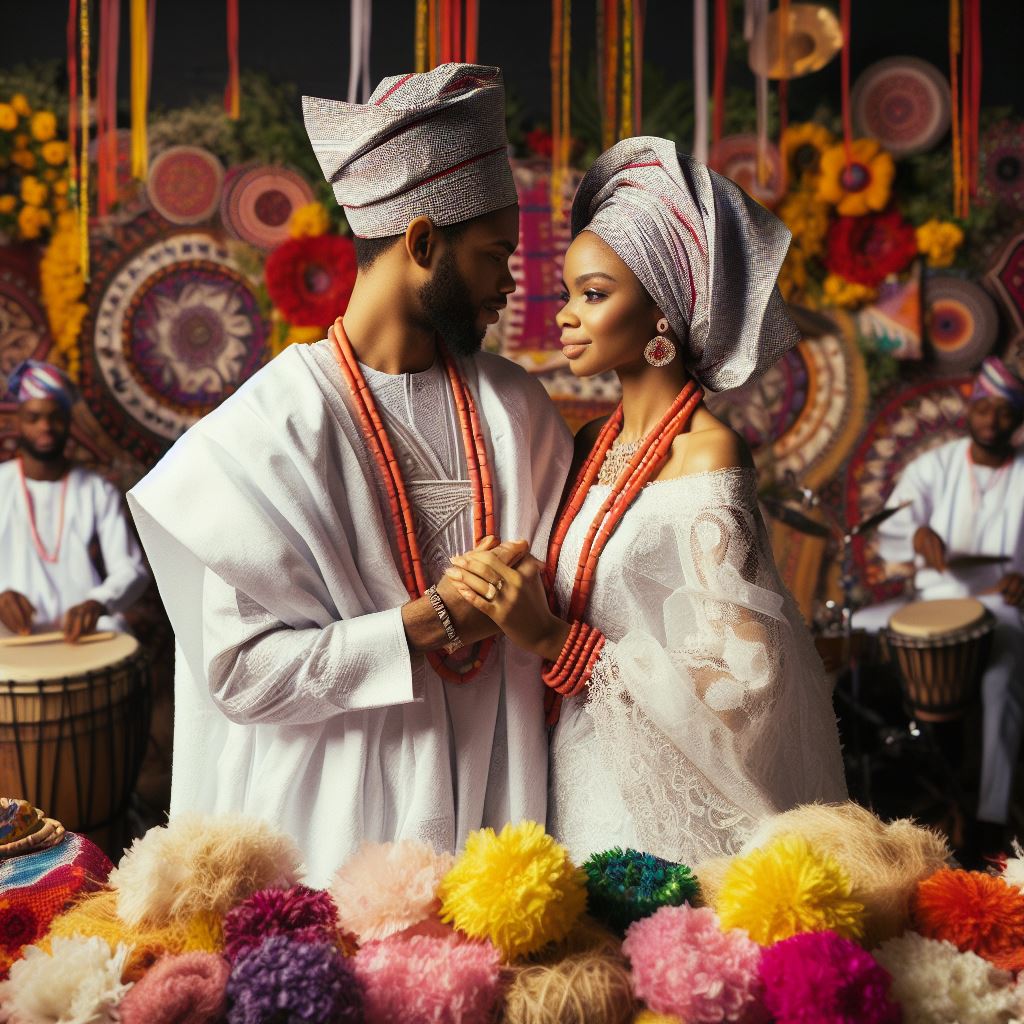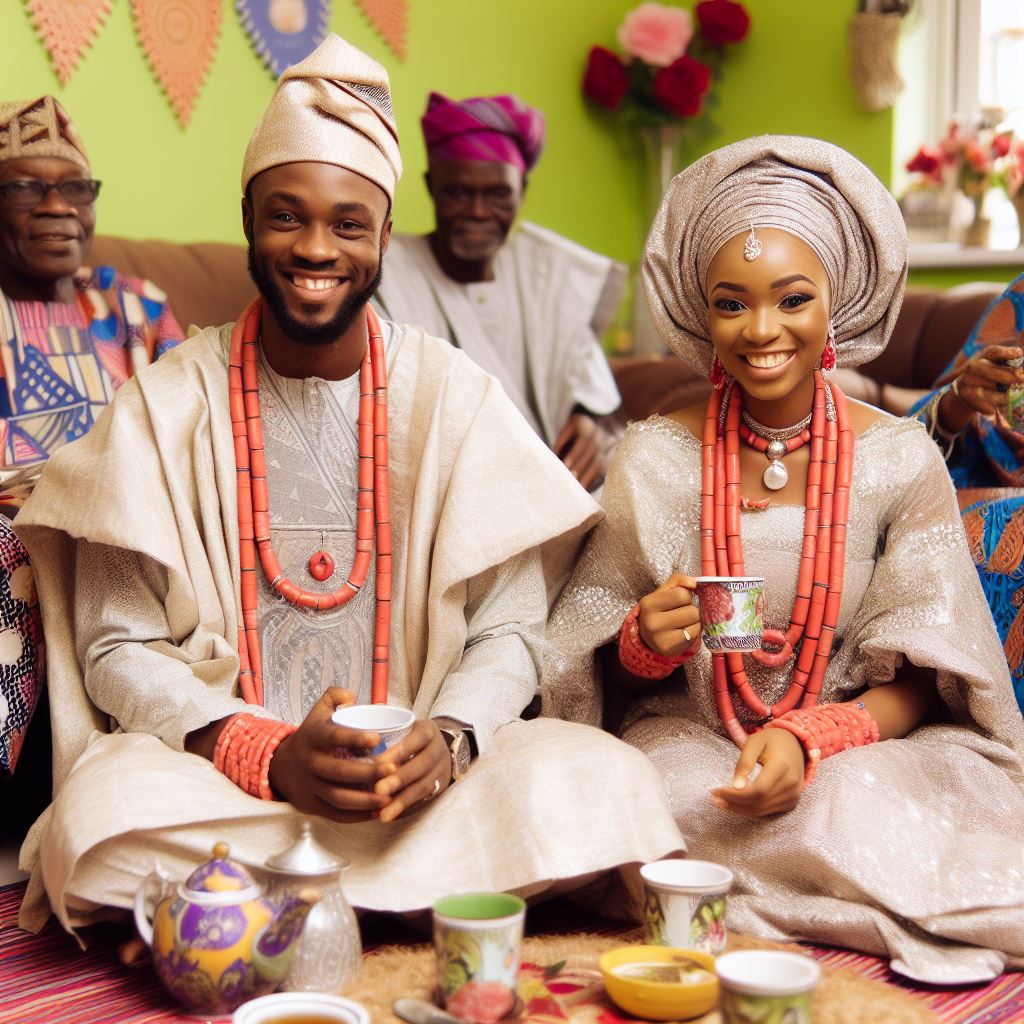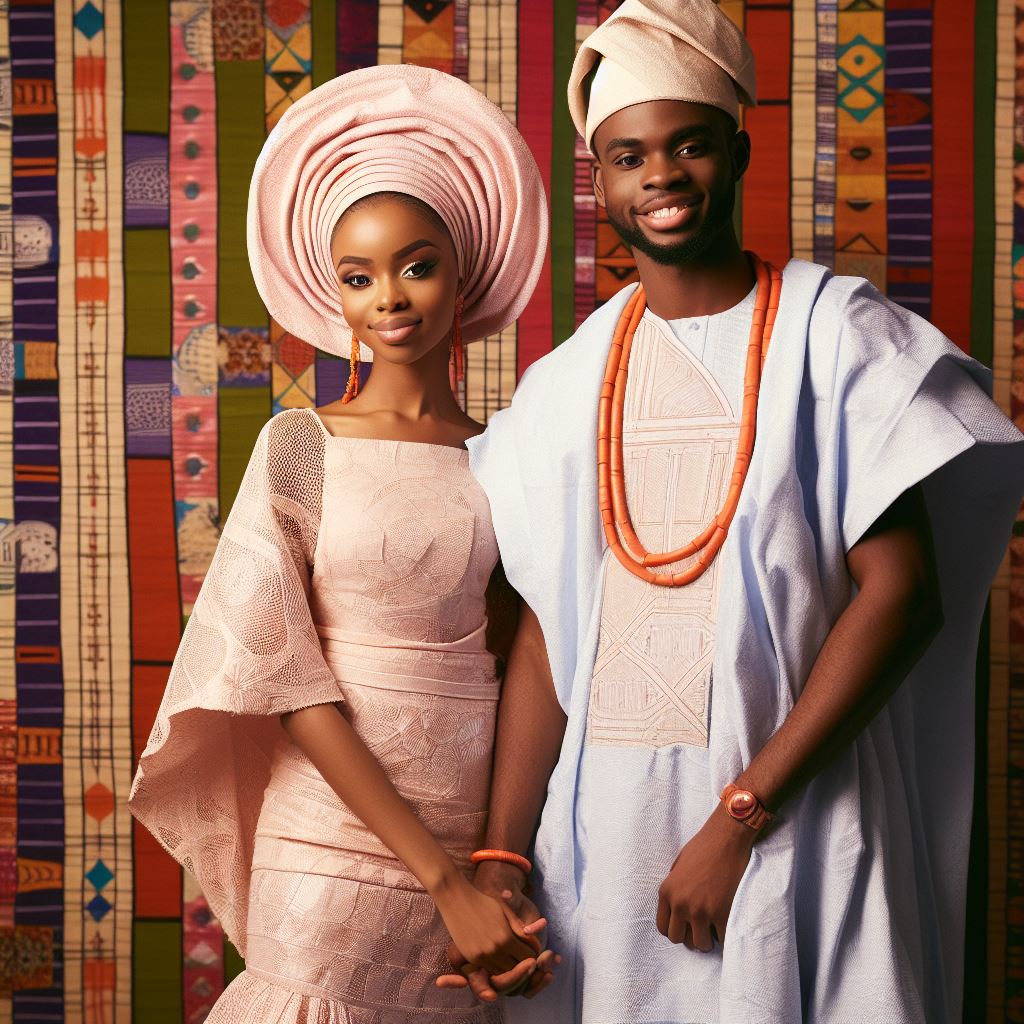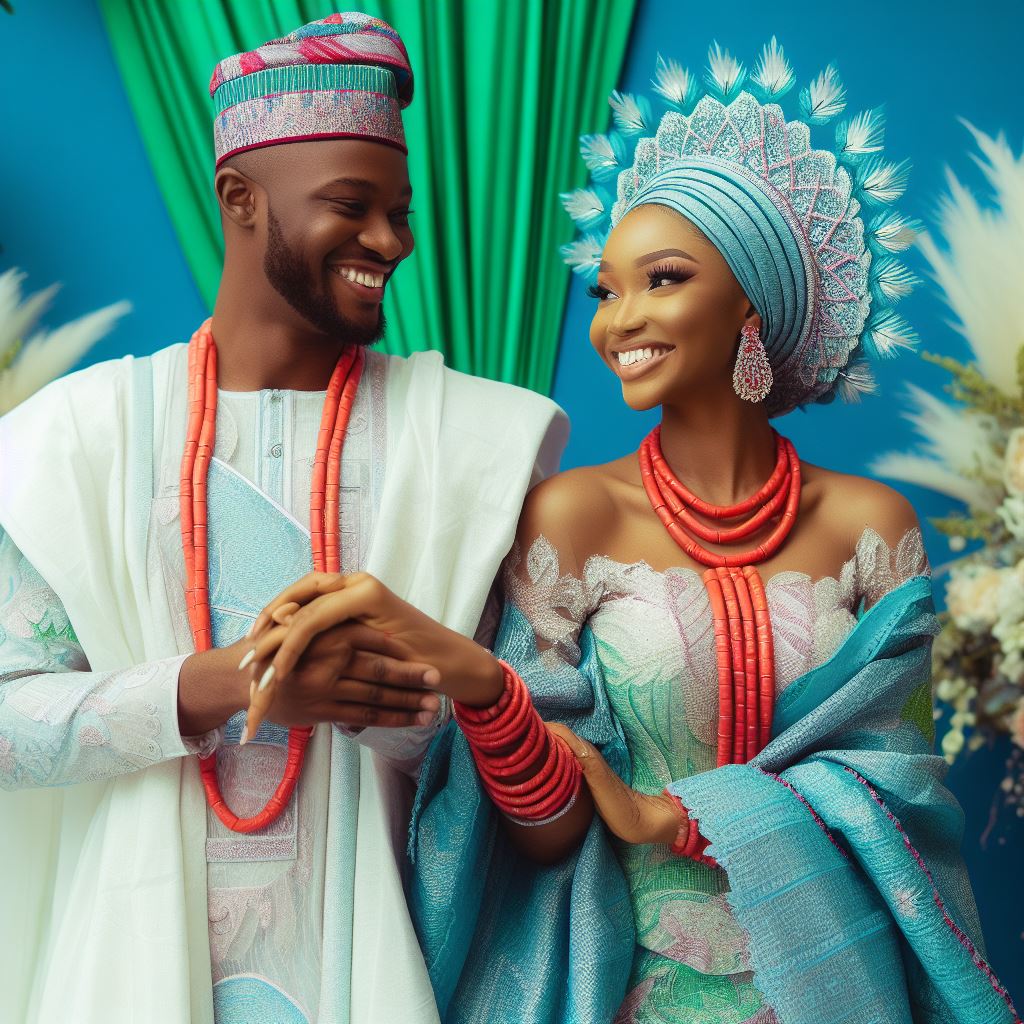Introduction
The topic of Nigerian interfaith marriages
Interfaith marriages in Nigeria are marriages between individuals belonging to different religious backgrounds.
These marriages hold significant importance and are quite prevalent in the Nigerian society. This blog post aims to delve into the triumphs and trials faced by Nigerian couples in interfaith marriages.
Significance and prevalence of interfaith marriages in Nigeria
Interfaith marriages in Nigeria are incredibly significant, as they represent the diversity and tolerance within the country.
With a population consisting of both Christians and Muslims, interfaith unions serve as a symbol of unity and harmony.
Furthermore, these marriages provide a platform for individuals to learn about and respect different religious traditions.
In Nigeria, interfaith marriages are not uncommon. Many couples choose to embark on this journey, defying religious boundaries and embracing love above all.
However, navigating through the challenges and trials that come with these marriages can be arduous.
The triumphs faced by Nigerian couples in interfaith marriages include the ability to foster understanding and acceptance between religious communities.
By living harmoniously with their spouse of a different faith, couples can break stereotypes and exemplify the importance of love and respect.
On the other hand, trials often arise from societal and family pressures. Nigerian couples may face backlash, judgment, and discrimination from their communities and even their families.
Balancing personal beliefs with the expectations of society often becomes a difficult task.
Read: Biblical Foundations: Building Strong Marriages in Faith
Triumphs
The positive aspects and successes of Nigerian interfaith marriages
Nigerian interfaith marriages have numerous positive aspects and can lead to successes.
Despite religious differences, there are examples of couples who have maintained strong and happy marriages.
Mutual respect, tolerance, and communication are crucial in interfaith relationships.
Cultural understanding and compromise play a significant role in fostering harmony in these marriages.
One of the triumphs of Nigerian interfaith marriages is the opportunity they provide for individuals from different religious backgrounds to come together and build a life together.
These marriages often showcase the beauty of diversity and the strength of unity.
While challenges may arise, successful interfaith marriages emphasize the positive aspects and overcome obstacles with grace and resilience.
Couples who have managed to maintain a strong and happy marriage despite religious differences
In the face of religious differences, there are couples in Nigeria who have managed to maintain strong and happy marriages.
For instance, take the story of Amaka and Ibrahim. Amaka, a Christian, and Ibrahim, a Muslim, have been married for ten years.
They attribute their success to mutual respect for each other’s beliefs and a commitment to open and honest communication.
By prioritizing understanding and unity, they have been able to navigate through potential conflicts and challenges.
Importance of mutual respect, tolerance, and communication in interfaith relationships
It is essential to highlight the importance of mutual respect, tolerance, and communication in interfaith relationships.
Without these qualities, misunderstandings and conflicts can arise, leading to strain in the marriage.
Couples who triumph in interfaith marriages understand the need to respect and honor each other’s religious practices and beliefs. They navigate their differences with love, empathy, and a willingness to compromise.
The role of cultural understanding and compromise in fostering harmony in such marriages
Cultural understanding plays a significant role in fostering harmony in Nigerian interfaith marriages.
These couples recognize that their religions are not the sole contributors to their identity.
They acknowledge and embrace the cultural nuances influenced by their respective backgrounds, blending traditions to create a unique and harmonious household.
By incorporating elements from both religions and cultures, they create a sense of unity while celebrating their individuality.
Successful interfaith marriages in Nigeria often involve compromise and open-mindedness.
Couples understand that flexibility is necessary when it comes to religious practices, especially during significant celebrations and holidays.
They find a balance that allows them to honor their own beliefs while also respecting their partner’s faith.
It is crucial to nurture interfaith relationships by continuously seeking ways to enhance understanding and acceptance.
This can be achieved by learning about each other’s religions, attending religious ceremonies together, or engaging in interfaith community activities.
By actively participating and showing interest, couples demonstrate their commitment to the marriage and their respect for each other’s religious practices.
Read: The Song of Solomon: Exploring Love and Marriage
Trials
The challenges and difficulties faced by Nigerian couples in interfaith marriages
Interfaith marriages in Nigeria often come with a myriad of challenges and difficulties, testing the strength and resilience of the couples involved.
These trials can range from conflicts arising from conflicting religious beliefs, practices, and traditions to societal pressure, prejudice, discrimination, and even legal hurdles and complexities.
The potential conflicts arising from conflicting religious beliefs, practices, and traditions
One of the foremost challenges faced by interfaith couples in Nigeria is the potential conflicts arising from their differing religious beliefs, practices, and traditions.
Each partner may hold deeply ingrained beliefs and value systems that are central to their identity, causing clashes and disagreements in their daily lives.
The interplay between religious ceremonies, holidays, and rituals can become a constant source of tension.
Societal pressure, prejudice, and discrimination faced by interfaith couples in Nigeria
These conflicts and differences extend beyond religious practices to encompass broader social and cultural norms.
The issue of societal pressure weighs heavily on interfaith couples and can lead to significant strain within the relationship.
Many Nigerian communities exhibit a strong adherence to religious norms and expectations, making it difficult for interfaith couples to gain acceptance or support.
Prejudice and discrimination from friends, families, and even religious communities can create additional trials that interfaith couples must face.
Misunderstandings, stereotypes, and prejudice based on religious differences can lead to exclusion, isolation, and in worst cases, complete estrangement from support networks.
The burden of societal judgment can have a profoundly negative impact on the emotional well-being of the couples involved.
Legal hurdles and complexities when it comes to interfaith marriages in Nigeria
Furthermore, interfaith couples must navigate the legal hurdles and complexities that come with their union.
Nigeria, being a country with a predominantly religious society, does not have a clear legal framework for interfaith marriages.
Registration of such marriages can be challenging, as they often fall outside the purview of existing laws and regulations.
This lack of legal recognition can have severe consequences on rights related to inheritance, property, and child custody.
Despite these trials, interfaith couples in Nigeria are finding ways to triumph over adversity and build successful relationships.
Open and honest communication, mutual respect, and a willingness to compromise are key factors that contribute to their success.
Building a strong support network of like-minded individuals who embrace diversity and inclusivity also plays a crucial role in helping couples navigate the challenges they face.
Furthermore, education and awareness play a vital role in overcoming the trials associated with interfaith marriages.
By promoting a more tolerant and understanding society, Nigerian communities can alleviate the pressures and prejudices faced by interfaith couples.
Engaging in interfaith dialogue, creating platforms for discussion, and encouraging empathy and acceptance can go a long way in reducing conflicts and fostering harmony.
Read: Marriage and Divorce: What the Bible Really Says
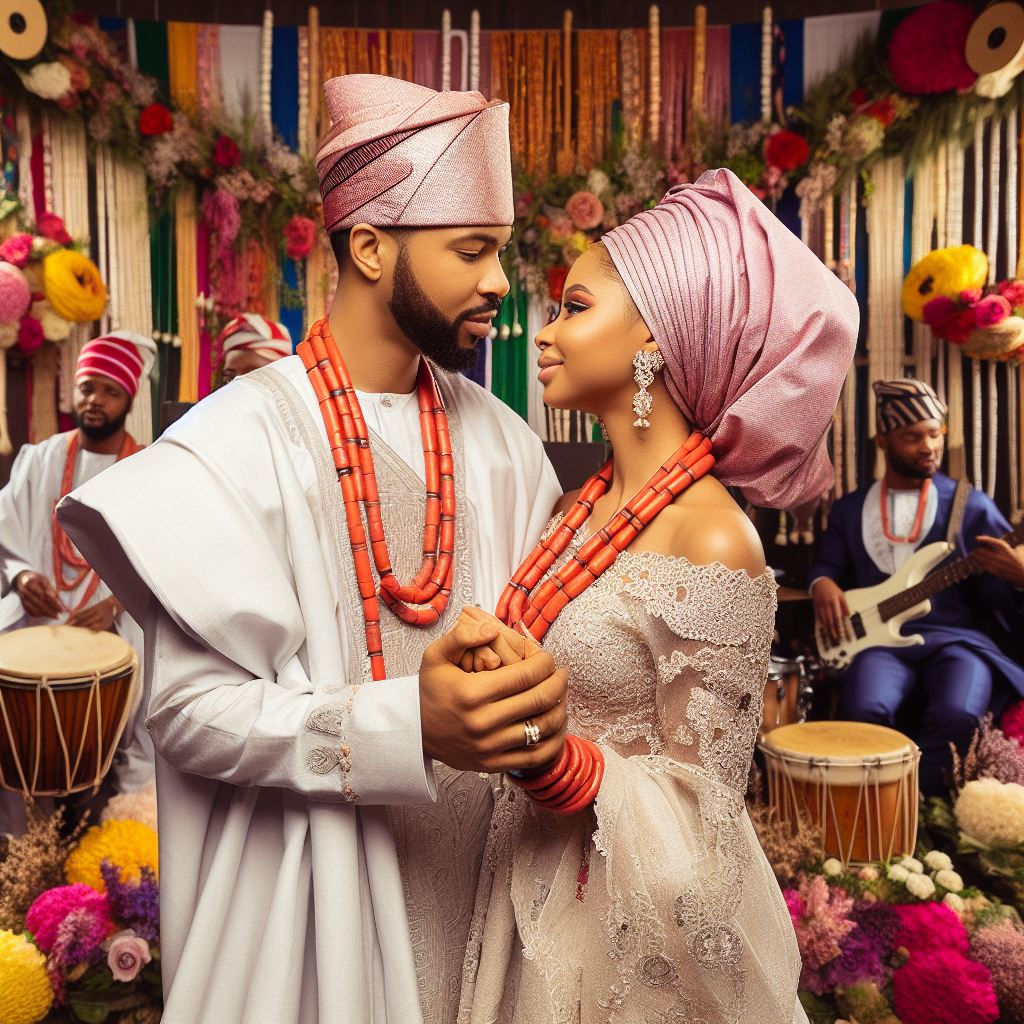
Mitigating Challenges in Nigerian Interfaith Marriages: Triumphs and Trials
1. Tips and Strategies for Overcoming Trials in Interfaith Marriages
- Foster mutual respect and tolerance towards each other’s religious beliefs and practices.
- Develop a willingness to compromise and find common ground in religious practices and rituals.
- Embrace a sense of empathy and understanding when dealing with disagreements related to religion.
- Establish clear boundaries and expectations regarding religious upbringing of children, if applicable.
- Educate yourselves about each other’s religions to promote better understanding and facilitate discussions.
2. The Significance of Open and Honest Communication in Addressing Religious Differences
Open and honest communication is vital in interfaith marriages as it
- Allows partners to express their views, concerns, and fears regarding religious differences.
- Enhances mutual understanding by facilitating dialogue about individual faiths and practices.
- Helps avoid misunderstandings or assumptions that can lead to conflicts.
- Promotes a sense of trust, emotional intimacy, and a stronger connection between partners.
- Encourages the development of a common approach to religious rituals and family traditions.
3. The Importance of Seeking Professional Counseling or Guidance
Professional counseling or guidance can provide valuable support and guidance.
- Offers a neutral and unbiased perspective on the challenges faced in interfaith marriages.
- Equips couples with effective communication techniques and conflict resolution skills.
- Assists in navigating complex issues such as family dynamics, cultural expectations, and religious sensitivities.
- Provides a safe space to explore personal beliefs and their implications on the relationship.
- It helps couples develop strategies to maintain a harmonious marriage while respecting individual faiths.
4. Approaches to Deal with Societal Pressures and Discrimination
Societal pressures and discrimination can be addressed using the following approaches:
- Surround yourself with a supportive network of friends, family, and mentors who respect and accept your interfaith marriage.
- Educate others about the importance of religious tolerance and diversity, challenging stereotypes and prejudices.
- Engage in interfaith dialogue and community initiatives to promote acceptance and inclusivity.
- Seek legal support if faced with discrimination in areas such as employment or housing.
- Emphasize the love, compassion, and shared values that exist in your interfaith partnership, to counter negativity.
Interfaith marriages in Nigeria can thrive amidst the trials by adopting strategies of respect, open communication, seeking professional guidance, and challenging societal discrimination.
These steps enable couples to build a resilient, loving, and accepting relationship that transcends religious differences.
Read: The Beauty of Commitment: Top Bible Verses on Marriage
Find Out More: Communication Breakdown: Techniques to Reconnect
Conclusion
Nigerian interfaith marriages present both triumphs and trials. While there are challenges in navigating cultural and religious differences, there are also successes in fostering understanding and unity.
It is crucial for couples to prioritize empathy, respect, and communication in their relationships.
Interfaith relationships have the potential to promote unity and tolerance in a diverse society like Nigeria. By embracing and celebrating their differences, couples can inspire others to do the same.
It is through these unions that communities can learn to coexist harmoniously, respecting each other’s beliefs and traditions.
To all interfaith couples in Nigeria, there is hope and encouragement. Despite the challenges you may face, remember that love knows no boundaries.
Your commitment to each other and willingness to understand will prevail over any difficulties. Embrace the unique journey you are embarking on, and always remember that love can conquer all.
In a society as diverse as Nigeria, interfaith marriages have great significance.
They serve as a bridge between different religious communities, encouraging dialogue and understanding.
These unions challenge traditional boundaries and pave the way for a more inclusive society, where diversity is valued and respected.
As we reflect on Nigerian interfaith marriages, let us recognize the triumphs and trials experienced by couples.
By fostering understanding, respect, and empathy, we can create a society that acknowledges and appreciates the beauty of diversity.
May interfaith relationships continue to thrive and inspire unity in Nigeria and beyond.

